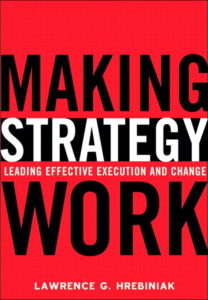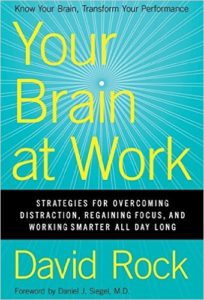“New Year’s resolutions don’t work. Planning your year does.” – YearCompass
Resolutions fail. A mere 8% of people who make New Year’s resolutions actually accomplish them. The cause of the 92% failure rate is the subject of a number of university studies. One major factor is poor planning and poor execution. Why don’t more people make a plan that “works?”
In the book, “Making Strategy Work: Leading Effective Execution and Change,” Lawrence Hrebiniak explains that “The problem with poor performance is that strategies often aren’t implemented successfully.” He explains that successful implementation requires, among other things, an execution plan that ensures consistent implementation over time.
Contrary to popular belief, “resolution” doesn’t mean, “fixedness of purpose; a determination.” The actual definition of “resolution,” is, “a process of reducing things into simpler forms.” A resolution is a plan, okay? Not a goal. You need a good plan that includes how you will execute. You need an execution plan and you need to set aside time to devise it.
Planning is hard.
From a neurology standpoint planning takes more energy than almost any other thinking function because it involves multiple taxing mental tasks, including: understanding, decision-making, recalling, memorizing, and inhibiting. These tasks are performed by the Prefrontal Cortex (PFC); the brain’s “fuel guzzler.” The PFC is the most highly evolved part of the brain and thus, also the most fuel-inefficient. Unlike the PFC, the cerebellum (aka, “reptile brain”) had more evolutionary time to adapt to the human diet. It performs tasks like breathing automatically and efficiently. To get the most out of your PFC you need good nutrition and sleep.
Since planning requires more energy than almost all other mental processes, and since we are inherently fuel-conserving (read: lazy), we avoid strategic planning at all costs. Your New Year’s resolution will fail if you don’t take steps to circumvent the energy limitations of your brain. So what is the solution?
Time is the solution. You need ample time to plan, and it’s best done over the course of multiple days.
Multiple days of planning gives you the periodic sleep and nutrition your PFC needs to sort things out. A tired, stressed prefrontal cortex is a stupid prefrontal cortex, and you don’t want to make a stupid execution plan. Sleep literally recharges your PFC, integrates knowledge, and lowers stress hormones that interfere with quality thinking.
You should dedicate time over multiple days to: reflect on the past year, assess your strengths and weaknesses, set goals, set sub-goals, break goals into actionable steps, commit to a system of execution, and implement the plan by scheduling actionable steps into a calendar you trust.
Do not rush creating your execution plan. Most people merely declare their yearly goals after Christmas passes, in the wake of bloated dinner conversations; not the best environment for thinking clearly about your life unless your resolution is to drink more alcohol and eat more calories. That’s too easy. Don’t just “resolve” to accomplish your goals. Do the hard work of breaking goals into actionable steps.
Set aside time in your calendar to strategize.
It’s mid December at the time of writing. Start planning now so when January 1st arrives you can execute with confidence. By giving yourself extra time to strategize, and by periodically sleeping, your brain can replenish the PFC, which is needed to ensure a higher quality strategy of execution.
Don’t just “resolve” to accomplish your goals. Do the hard work of breaking goals into actionable steps.
If you need a framework for planning the upcoming year I recommend YearCompass. It’s a free workbook that guides you through the reflection, assessment, and goal-setting process. It’s great, truly. I use it every year. You can find it at www.yearcompass.com. If you’re interested in a more in-depth and academic framework for planning, I recommend the Future-Authoring program provided by www.selfauthoring.com. I used it for the first time this year after I heard Jordan Peterson recommend it on the Joe Rogan Experience Podcast. It guided me through questions that forced me to spend multiple hours understanding and planning my goals. So far I’ve spent over five days planning for next year and feel completely confident in my execution plan.
For more information on the different structures and functions of the brain (like the PFC), it’s limitations, and how to improve your thinking, I recommend reading “Your Brain at Work,” by David Rock. I’ve read it three times and by applying what I’ve learned, I have tripled my productivity at work (spoiler alert: one solution is to eat chocolate and nap more often).
I hope you set aside time over the course of multiple days to plan how you’ll accomplish your goals, before January 1st.
Love,
Joe



Comments are closed, but trackbacks and pingbacks are open.